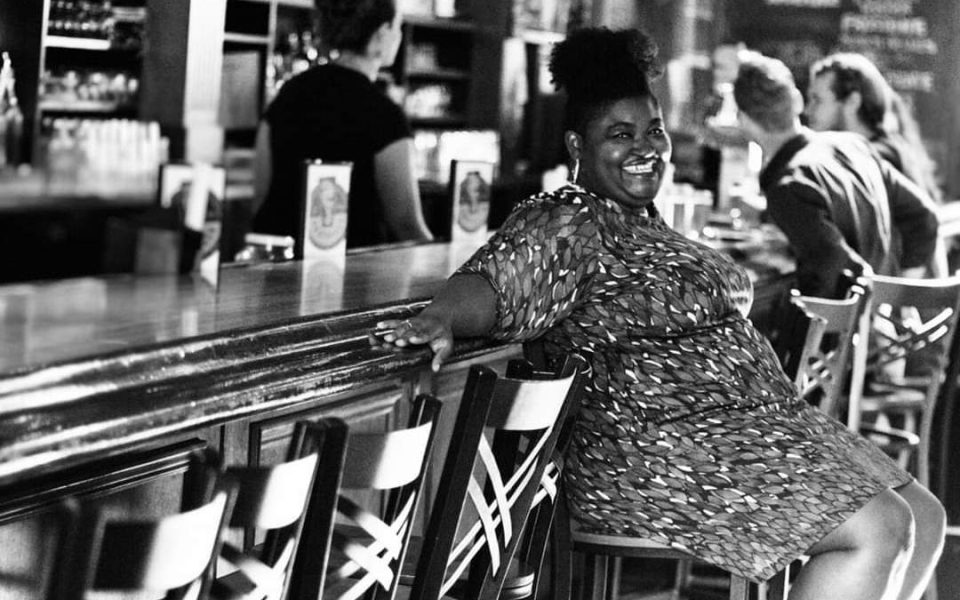Just like thousands of hospitality workers and employees of local companies, my job and life as a culinary professional is under attack. The shutdown has affected me in more ways than one. Even though restaurants are open at 50 percent capacity, I’m just not ready. Nowadays I’d have to dress in a suit of armor under the guise of PPE, Google search each restaurant, take note of the new hours, document the new and truncated menus and hope for the best. Customer service as we know it is gone. There are no more lengthy, casual conversations; it’s hard to convey empathy and joy from behind a mask. Asking servers and other restaurant workers for an additional ramekin of ranch or more napkins all seem excessive when lives and incomes are on the line.
I want to. I want go out to eat and enjoy myself.
In pre-pandemic times, I’d text my friends, “See you in 20!,” swoop some lipstick across my face and sprint out the door. My favorite bartender would see me walk in, and while she’d go through the pretense of asking, we’d both know it’s an IPA and she’d have already started pouring it in a mug. Hugs and handshakes from friends, banter with the veteran servers and various managers, a burger (cooked med rare with melted pepper-jack and a slick of hot sauce, black-bean corn salad instead of fries — or maybe not), and deep, guttural laughter from the depths of our souls fill the air while we cap it all off with a little too much Fireball because hey why not, and I glide home in an Uber with my heart and belly full. It’s a celebration. It’s just so normal.
All of that feels like a different life. And I don’t think we’ll ever get it back.
The last time I took up residence at any bar was on March 14, which I remember quite vividly because I led a food tour in downtown Greensboro. I had to smile and hold back tears because as we left each stop, the restaurants all but locked their doors behind us. I did the only thing I could: finish quickly, pray my guests tipped heavily and say a heartfelt thank you to the them.
“I hope we’ll be back soon!”
Now the restaurants are back — some of them — with a thousand precautions and protocols and outdoor-only seating, limited delivery options and no to-go cocktails but cocktail mixers, beer and wine sales seem to be booming. I just can’t make myself sit down at a table to join everybody else. I’m too afraid.
Not of them but for them.

People who work in hospitality are my personal heroes and my friends. They keep my belly full, feed me with gossip, fuel my employment and they’re all among the most vulnerable people in the workforce. Many haven’t gotten any sort of government-based unemployment assistance because of documentation status or because of overwhelmed and antiquated systems. Many restaurant workers don’t have an option to not return to work, because they’re the least able to weather the loss of a paycheck. But they’re also at tremendous risk from exposure to diners who open their mouths to order, eat while some scream about the indignity of being asked to wear masks to protect their fellow humans.
Outdoor dining has resumed with fervor and I hate it. I find myself crossing the street to avoid the sight and sounds of unmasked diners, even as I envy them. I, too, would like a break from the increasingly crushing monotony of my own home kitchen, and delivery from local spots I’d like to stay see in business forever. I’d like not to flinch when characters on TV shake hands or dance with abandon at crowded nightclubs and bars.
It is not a good time.
I’m feeling so sickened and scared; I fear that the future of the hospitality industry is doomed. But I continue to hope. I have hope that the restaurant community will trim bottom lines and collectively make sure no one fails. I have hope that a new norm of restaurant dining will blossom and flourish. I have hope that the industry will once again welcome its hungry masses with open arms and open tabs. I’ve lost my appetite, but I still have hope.
Join the First Amendment Society, a membership that goes directly to funding TCB‘s newsroom.
We believe that reporting can save the world.
The TCB First Amendment Society recognizes the vital role of a free, unfettered press with a bundling of local experiences designed to build community, and unique engagements with our newsroom that will help you understand, and shape, local journalism’s critical role in uplifting the people in our cities.
All revenue goes directly into the newsroom as reporters’ salaries and freelance commissions.


Ohh, Nikki, I echo your words. And that’s all I can say about your beautifully written article at this moment.